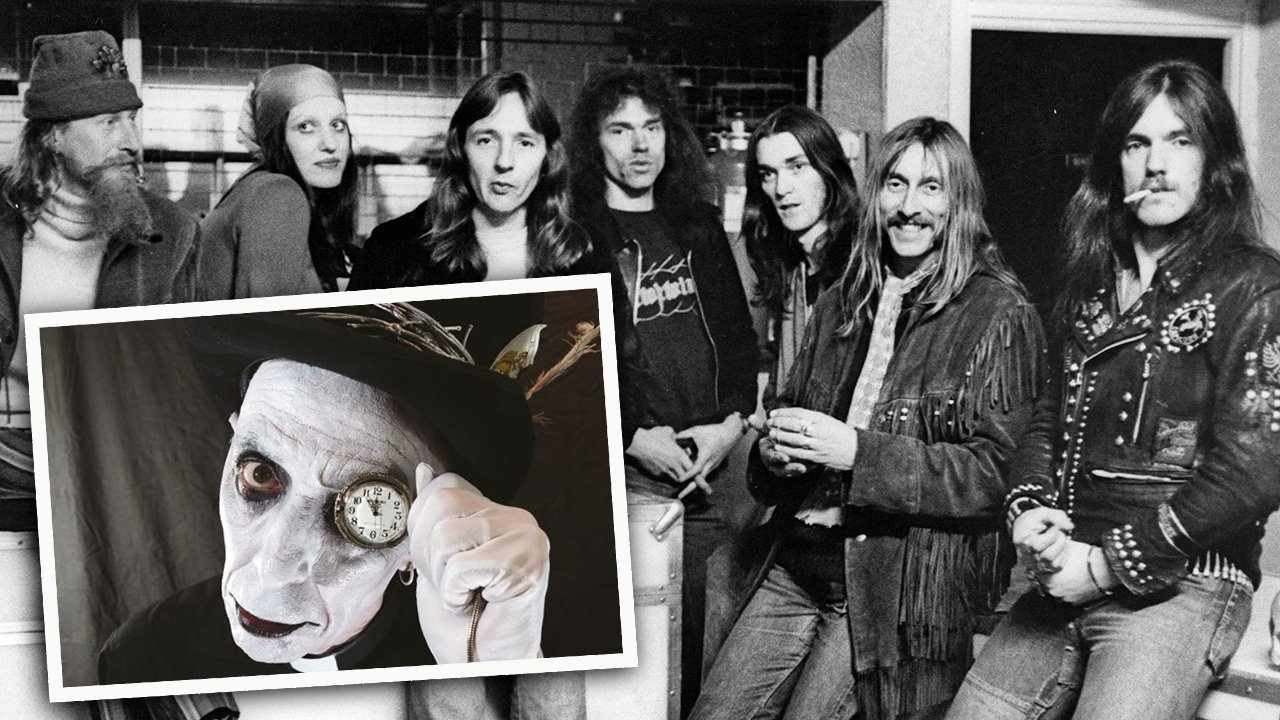Rock'N'Roll: Ian Gillan
Purple frontman's deep thoughts.

As a musical form, is it true that rock’n’roll arrived in your life via Elvis Presley?
For sure. I was a boy soprano in the church choir. But with Elvis the entire world changed.
Was it the rebellion that you admired?
No, no. That’s just how the media reported it. It was the voice, which came straight from the soul, and his personality.
You were ten when Elvis and Bill Haley started having hits – too young to become a Teddy boy.
Not only too young but also too remote [Gillan was born in Hounslow, on London’s outskirts].
That influence in its purest form is quite evident in a song such as Deep Purple’s Speed King.
Sign up below to get the latest from Classic Rock, plus exclusive special offers, direct to your inbox!
Yes. When I walked into the first Deep Purple writing session with Roger [Glover, in 1969], we’d spent the previous two years writing songs with no success [in Episode Six]. Roger had never been involved in a jam session before. And I had the same shock, so I started yelling lines from various Little Richard and Presley songs.
A Martian comes down to Earth and demands to know about rock’n’roll. You hand them a copy of which record?
Good Golly Miss Molly [Little Richard, 1956]. No contest.
Do you hear much rock’n’roll in the music that’s popular right now?
I don’t listen to it for the sole reason that I can cut short that kind of question. But I will say that music of each generation is intended to antagonise its predecessor. It’s like David Cameron claiming to like The Smiths – he’s not supposed to.
Regarding rock’n’roll as an attitude, can you offer a definition?
It’s an explosively powerful thing that stays with you for life. However, life doesn’t stand still. You grow up, you mature and evolve. I remember when you could choose between a maximum of thirty releases a week – I’m talking about singles; albums were a rarity. And look at it now. Music’s everywhere, it’s as common as muck.
It can also be used to validate juvenile behaviour: “Look at him, he’s so rock’n’roll.”
Well, we all did it. It doesn’t matter if you’re a rock singer, a footballer or a so-called celebrity. Give someone vast amounts of money when their hormones are raging, surround them with sycophants and the results are predictable. At least when I joined Purple we were fairly well prepared, we knew our stagecraft and were learning how to write songs. But I didn’t do any malicious damage, and neither, I think, did anyone I knew. Then again, there were no drugs in Deep Purple. We were a drinking band.
Can it also mask a lack of talent?
Possibly, yes. On TV the other day some modern superstar – and I’ve no idea who he was – said: “The days are gone when in order to be a highly respected musician you must learn how to play an instrument.” That sent a shiver down my spine.

Dave Ling was a co-founder of Classic Rock magazine. His words have appeared in a variety of music publications, including RAW, Kerrang!, Metal Hammer, Prog, Rock Candy, Fireworks and Sounds. Dave’s life was shaped in 1974 through the purchase of a copy of Sweet’s album ‘Sweet Fanny Adams’, along with early gig experiences from Status Quo, Rush, Iron Maiden, AC/DC, Yes and Queen. As a lifelong season ticket holder of Crystal Palace FC, he is completely incapable of uttering the word ‘Br***ton’.
